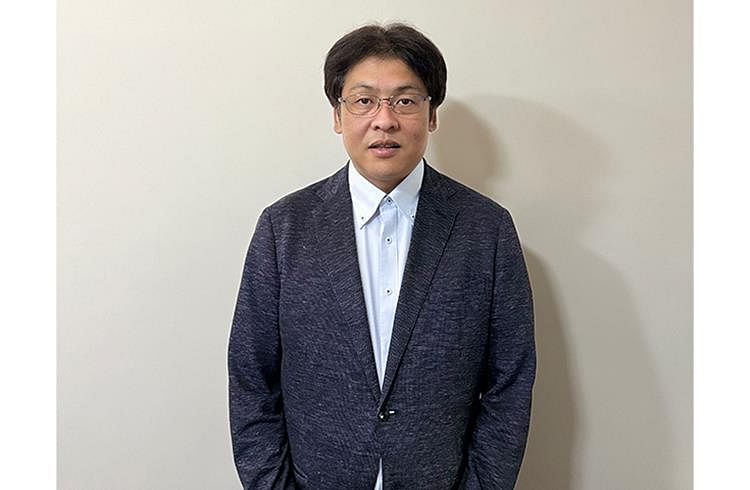Budget 2024: What Auto Inc wants
Some industry asks are policies on charging infrastructure, enhancing battery recycling capabilities and impetus for R&D.
Expectations are riding high as the full budget is around the corner. As the Union budget will be tabled on 24 July, here is what Auto Inc would like to see.
Mahesh Babu, the CEO of Switch Mobility would like to see the continued adoption of electric vehicles in the country.
We expect the introduction of FAME III, building on the successes of the previous phases. This new phase should offer enhanced incentives for both manufacturers and consumers, making electric vehicles more accessible and appealing. We emphasise the need to continue support for 4W light commercial cargo vehicles in the FAME III scheme as they play a critical role in urban logistics and last-mile deliveries," he noted.
Addressing Payment Security Mechanism issues

Mahesh Babu also expects the implementation of robust payment security mechanisms, to encourage OEM and OEM-backed operators to participate in electric bus tenders. Thereby helping the Government’s vision towards faster electrification of public transportation. "Incentives for electric buses for private operators will enable faster adoption," he noted.
He has proposed breaking down the electric bus ecosystem into distinct roles where separate players handle operations, financing, asset ownership and technology, to accelerate the electric bus rollout in the country, which currently suffers from the lack of a clear payment system.
Proposed measures to promote e-buses and enhance payment security are crucial for accelerating sustainable transportation, noted Kartikey Hariyani, Founder and CEO of ChargeZone.
The Minister of Heavy Industries HD Kumaraswamy clarified that preparatory work on the FAME III is going on, and will not be a part of the upcoming Union Budget.
Funding for R&D and Skill development
Funding for research and skill development is another ask of industry leaders. Hitesh Garg, Vice President and India Country Manager at NXP Semiconductors said he would like to see the 2024 Union Budget prioritise investments in digital infrastructure and offer incentives for research and skill development.

"These measures are important for building an ecosystem conducive to cutting-edge technologies such as SDV, AI, and IoT, strengthening cybersecurity measures, and enhancing IT exports."
Recyclekaro's CEO Prassann Daphal, too, wants the budget to focus on R&D.
"Another crucial expectation is higher funding for research and development of battery recycling infrastructure and technologies. Improving domestic battery recycling capabilities and lab space can help the local industry expand while lowering reliance on imports."
PLI Auto Scheme
Further talking of the EV scheme, Naoya Nishimura, CEO, Musashi India & Africa Region speaks about the possibility of the government extending additional support to EV startups by enhancing the current PLI Auto Scheme.

"The PLI scheme for Automotive and Auto Components has already exceeded expectations, attracting investments of Rs 74,850 crore, far surpassing the target of Rs 42,500 crore over five years. By prioritizing funding and capacity-building initiatives for local components, we can strengthen domestic supply chains, reduce reliance on imports, and align with global standards. These proactive measures will drive significant economic growth and position our country as a global leader in the EV market," he noted.
A specialised PLI plan for recycling lithium-ion batteries is being pushed. With the support of this program, the recycling industry would be encouraged to grow and make a substantial contribution to India's sustainability objectives. The government may support the expansion of the industry by expanding the PLI plan to include the whole value chain, from manufacture to recycling, Daphal further noted.
Clarity on key enablers such as streamlined licensing norms, regulatory standardization, and reduced taxes will unlock the sector's full potential. "Enhanced subsidies and incentives for EV manufacturers and consumers, expanded tax credits, and reduced tariffs on EV components will drive adoption and investment. Significant investment in EV charging infrastructure across urban and rural areas will create a sustainable network supporting the rapid growth of electric vehicles nationwide," Hariyani further noted.
Policies for charging infrastructure
Chakravarthi C. Managing Director, Quantum Energy would also like to see policies that support the development of a robust charging infrastructure, including incentives for renewable energy-powered charging stations, to ensure seamless and eco-friendly commutes.
As an industry player, we anticipate more support for local battery production and innovation, which are critical for the sustainability and cost-effectiveness of EVs, he noted, also stressing on simplifying and enhancing financing options for EV purchases will also play a crucial role in boosting adoption rates.

"We look forward to the government introducing clearer regulations and supportive policies in the budget to drive innovation, focusing on streamlined regulatory processes, increased funding opportunities, and enhancements in digital lending, SME financing, and cross-border trade facilitation," noted Sameer Aggarwal, Founder and CEO of Revfin.
Muthu Subramanian, MD and GM, Yuma Energy added that policy changes on the energy infrastructure front can help augment the rate of EV adoption.
Rationalisation of GST on sale of EV batteries
"One long-awaited step is the rationalisation of GST on the sale of EV batteries. There is an urgent need to bring about taxation parity between batteries sold separately (currently taxed at 18%) and those built into fixed-battery EVs (taxed at 5%). Under the current tax structure, the battery swapping entities that procure these batteries are forced to recover the additional cost from end-consumers.

He said this automatically put swapping services at a disadvantage, despite the several benefits they offer to end-users in terms of access and affordability of energy, and speed of service.
"From the battery swapping industry's perspective, another issue is the 18% GST levied on swapping services rendered by users. Bringing this down to 5% would reduce the TCO (total cost of ownership) for consumers and accelerate EV adoption."
RELATED ARTICLES
SWITCH Mobility Launches Electric Double Decker Bus Sightseeing Route in Delhi
The 'Dekho Meri Dilli' initiative deploys India's first electric double decker AC bus on a heritage sightseeing route, c...
Indonesia Postpones 105,000-Vehicle Import Plan From India, Bloomberg Reports
Citing senior officials, Bloomberg reported that Indonesia is reassessing its import plan over concerns about the domest...
INDEX Group Opens Bangalore Technology Center to Expand India Market Presence
The German CNC machine manufacturer has established a new branch with a showroom and demonstration facility near Bangalo...






 By Autocar Professional Bureau
By Autocar Professional Bureau
 19 Jul 2024
19 Jul 2024
 35171 Views
35171 Views





 Sarthak Mahajan
Sarthak Mahajan


 Arunima Pal
Arunima Pal


